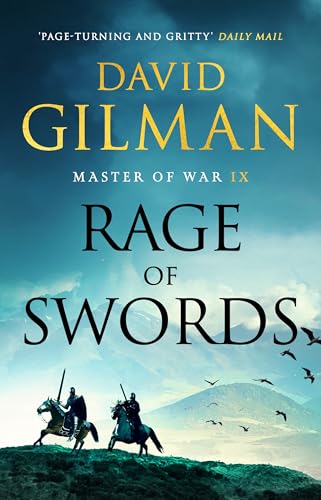Historia interview: David Gilman
David Gilman’s new novel, Rage of Swords, is the latest in his Master of War series and sees Thomas Blackstone in action in Italy. David tells Historia about the ideas and research behind his book, as well as offering advice for authors — and choosing a delightfully unexpected item he’d like to have beside his writing desk.
Rage of Swords is set in 1368 during the Hundred Years’ War. What drew you to this particular moment in history for the latest instalment?
DG: The ninth novel in the series follows on from the previous book, To Kill A King. Having fought at Najera and then in a duel with a master swordsman, the future looked to be more conflict in Spain for Blackstone. But the Italian priest, Torrelini, who has shadowed Blackstone’s life since the Battle of Crécy, is the go-between for the Bardi Bank and Edward III. And the bank finances the English King’s war.
Violante and Gian Galeazzo Visconti
A note arrives from England as Thomas Blackstone lies close to death from his wounds. Edward needs gold, and it can only be found in Italy. It’s the dowry offered by Galeazzo Visconti when his daughter marries Edward’s son, Lionel, Duke of Clarence.
And so it was a factual moment in history that sent Blackstone and his men across the Alps to face old and new enemies.
How do you balance historical accuracy with the demands of fast-paced adventure storytelling?
DG: Each book in the Master of War series is triggered by a historical event, and if there’s a battle, then that’s where Blackstone would be, but historical fact is a backdrop. My novels focus on the characters, and it’s these individuals, whether it be Blackstone or any of his men, that readers relate to.
If an author doesn’t create complex characters, be they good or evil, that a reader can relate to, then a story dies on the page, no matter how much action or pacing there is. For readers to absorb moments in history that are reflected in the story is a plus. Tax records, guild documents, and merchant logs — they tell you what people actually ate, wore, and complained about.
The Virgin Being Worshipped by Members of the Cavalli Family
The most powerful adventures are not about swordplay alone, but about the moral choices and emotional and physical challenges these characters face.
Read the full interview on Historia


